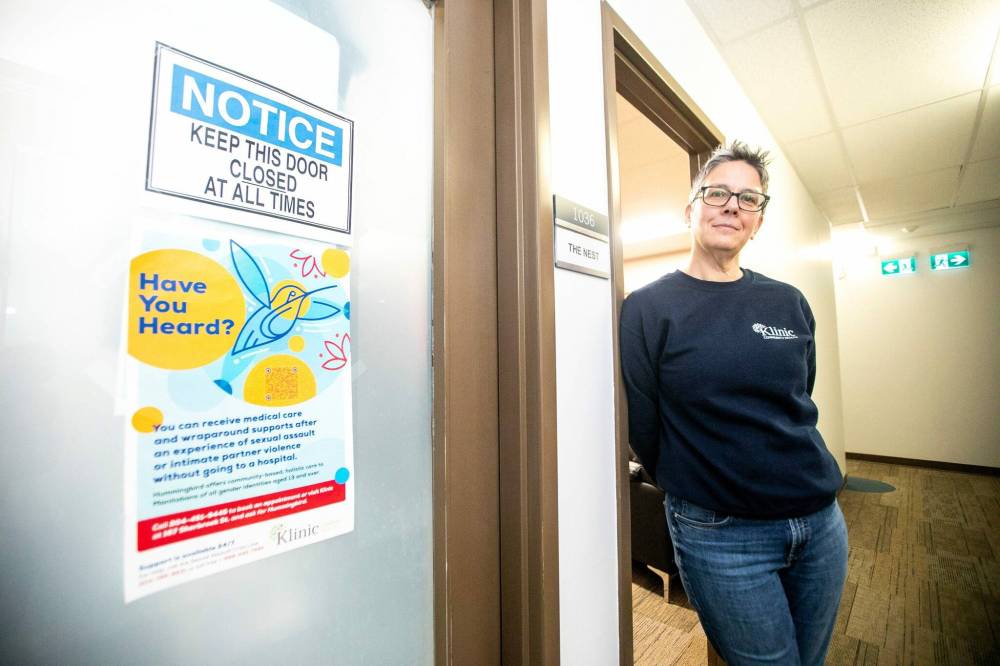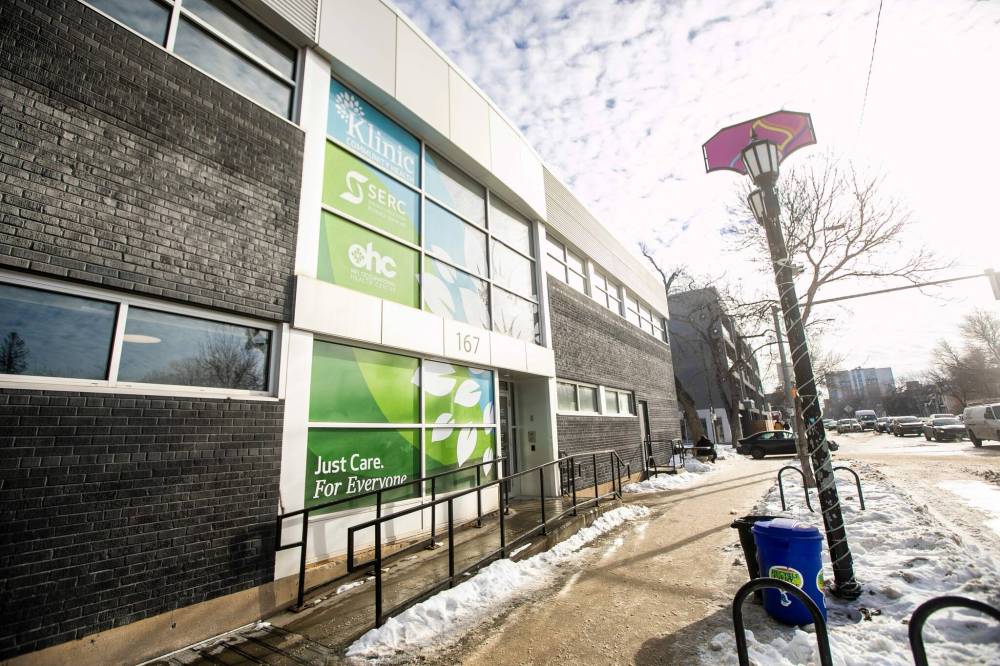HSC program for sex assault survivors expands after staff shortage addressed
Read this article for free:
or
Already have an account? Log in here »
To continue reading, please subscribe:
Monthly Digital Subscription
$0 for the first 4 weeks*
- Enjoy unlimited reading on winnipegfreepress.com
- Read the E-Edition, our digital replica newspaper
- Access News Break, our award-winning app
- Play interactive puzzles
*No charge for 4 weeks then price increases to the regular rate of $19.00 plus GST every four weeks. Offer available to new and qualified returning subscribers only. Cancel any time.
Monthly Digital Subscription
$4.75/week*
- Enjoy unlimited reading on winnipegfreepress.com
- Read the E-Edition, our digital replica newspaper
- Access News Break, our award-winning app
- Play interactive puzzles
*Billed as $19 plus GST every four weeks. Cancel any time.
To continue reading, please subscribe:
Add Free Press access to your Brandon Sun subscription for only an additional
$1 for the first 4 weeks*
*Your next subscription payment will increase by $1.00 and you will be charged $16.99 plus GST for four weeks. After four weeks, your payment will increase to $23.99 plus GST every four weeks.
Read unlimited articles for free today:
or
Already have an account? Log in here »
Hey there, time traveller!
This article was published 30/01/2025 (316 days ago), so information in it may no longer be current.
A program that treats survivors of sexual assault and gender-based violence has overcome staffing problems and has been able to expand across the province.
After a mass exodus of nurses from the Health Sciences Centre sexual assault nurse examiner program in March 2023, the province rebuilt the program. In January 2024, it spent $1.3 million to expand it to Klinic and Ka Ni Kanichihk in Winnipeg; and later, to rural and northern Manitoba.
Klinic and Ka Ni Kanichihk had previously provided just counselling and advocacy for patients when they attended the HSC program.

The expanded programs feature forensic nursing, mental health services and counselling, advocacy, and Indigenous cultural support.
Kara Neustaedter, who oversees Klinic’s program, which is dubbed “Hummingbird,” said the expansion gives survivors a choice about where they receive care.
“I think any time we offer folks the opportunity to make choices for where they want to receive their care, we are in a very, very, tiny way providing an antidote to that choice violation that occurred through the violence,” she said.
In March 2023, seven of the 13 casual nurses in the program at HSC quit. Then the program co-ordinator resigned.
At the time of the resignations, HSC was struggling to fill shifts. An increasing number of victims were told to wait in the ER or were sent home with instructions not to shower or wipe themselves after using the washroom to preserve evidence until they could see a nurse.
Currently, 38 nurses across the province are trained to provide the specialized care to survivors.
The locally managed program has six nurses who practise at HSC and two others who are being trained. Klinic has five full-time equivalent and four casual nurses who travel between the Sherbrook Street clinic and Ka Ni Kanichihk’s Velma’s House shelter to provide medical care to stable patients.
If a patient is unstable or requires sutures or other care, they must go to HSC.
A Shared Health spokesperson said staffing has remained stable and there have been no gaps in service for survivors since the resignations in 2023.
In the 2023-24 fiscal year, there were 434 presentations to the HSC program. Another 425 presentations have been recorded so far this fiscal year, which began April 1, 2024.
The sites also co-ordinate with one another. If a patient showed up at Klinic but changed their mind and wanted to receive care at Ka Ni Kanichihk or HSC, Klinic will arrange transportation or an appointment.
“It really is about letting that person guide their care. As long as they are medically stable and can make that choice between the three options, we really value them being able to make that choice,” Neustaedter said.
The program manager said the funding has not only added the medical aspect to its counselling and advocacy program, which has been around since the late 1980s, but it’s helped to consolidate care. Neustaedter said everything can now be done at the same site instead of counsellors needing to be sent to HSC.

The funding also shows a commitment from the NDP government to provide support to survivors of sexual violence.
Neustaedter pointed to a recent two-day conference in which the different networks gathered to discuss how better to support survivors, which was attended by Nahanni Fontaine, the families minister and Uzoma Asagwara, the health minister.
“What I recognize is sort of a sustained, committed willingness from those two ministers, in particular, and I would then say the government sort of supporting them, is to really improve how people receive care after experiencing gender-based violence,” she said.
Asagwara said the government made the program a priority due to what the minister called an “epidemic” of sexual and intimate partner violence in Manitoba.
“It’s critically important for political leadership to not only say they stand with survivors, but that survivors can depend on them being there for them in their times of need,” Asagwara said Thursday.
The province announced last April it would hire SANE nurses for rural and northern Manitoba, where statistics show instances of intimate partner violence are higher and care is harder to access.
Manitoba has the nation’s highest rate of police-reported sexual assault cases in rural areas, with 170 incidents per 100,000 people in 2021, as per Statistics Canada.
While the program is running smoothly and successfully, Neustaedter said there is room to improve in some areas including how survivors navigate the health-care system during and after experiencing violence.
“Any way that we can make that smoother greatly benefits people so they have more energy for taking care of themselves and their wellness and their families, and less energy trying to find out how to get their needs met,” she said.
nicole.buffie@freepress.mb.ca

Nicole Buffie
Multimedia producer
Nicole Buffie is a reporter for the Free Press city desk. Born and bred in Winnipeg, Nicole graduated from Red River College’s Creative Communications program in 2020 and worked as a reporter throughout Manitoba before joining the Free Press newsroom as a multimedia producer in 2023. Read more about Nicole.
Every piece of reporting Nicole produces is reviewed by an editing team before it is posted online or published in print — part of the Free Press‘s tradition, since 1872, of producing reliable independent journalism. Read more about Free Press’s history and mandate, and learn how our newsroom operates.
Our newsroom depends on a growing audience of readers to power our journalism. If you are not a paid reader, please consider becoming a subscriber.
Our newsroom depends on its audience of readers to power our journalism. Thank you for your support.



